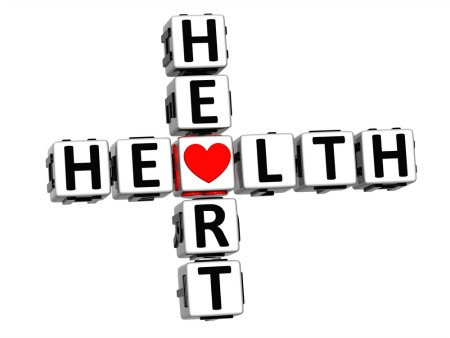
Kimberly Montgomery’s refusal to see things negatively was a huge advantage to her over the years. That is, however, until she didn’t take the signs of a heart attack or her family history seriously, and it almost cost her life.
When Kimberly became ill one afternoon after a hot yoga class, she came up with many explanations for her nausea and profuse sweating – a heart attack wasn’t one of them. Instead, she was sure she simply hadn’t cooled down from class. Or it was food poisoning. Or the onset of menopause even crossed her mind. She was sure it was nothing critical.
When her symptoms persisted, a friend convinced her to walk to a nearby urgent care clinic. She was transported by ambulance to a nearby hospital, but even that wasn’t enough to worry her. When Kimberly asked the doctor – who was about to perform a heart catheterization procedure – if he could wait a few minutes until her family arrived, he told her there was no time to lose. She had just had a heart attack.
Kimberly, like many women, was completely unaware that nausea and sweating are two major symptoms of a heart attack in women.
“When I heard the words ‘heart attack,’ I finally started worrying,” she says. “I was no longer in denial about what was happening to me.”
The doctor assessed the damage to her heart and found one artery with a 75 percent blockage and another with an 80 percent blockage. Two stents were inserted, and the cardiac rehab process began.
An avid exerciser, Kimberly found the recovery process frustrating “I was used to being active every day, and in my mind I knew I could do it,” she says. “But I had to really slow down and rebuild my body. I would be tired after walking just two blocks.”
Even more frustrating was Kimberly’s attempt to understand why this had happened to her. Her grandfather had died of heart disease years ago, but he was 80 years old at the time. Her mother was diagnosed with atrial fibrillation a few years earlier, but no one in her family had experienced a heart attack at such a young age. They were all athletes, running track in high school and continuing to exercise into their adult years. She didn’t connect the dots of her family’s history of heart disease until after she’d had her heart attack.
“I just never considered that I could get heart disease,” she says. “I saw my doctor regularly and had great results at my company wellness screenings each year.”
But although she had been watching her blood pressure numbers, she wasn’t paying attention to cholesterol. Now fully recovered, Kimberly does cardio every single day and has adjusted her diet to be low in cholesterol and sodium. She’s also working hard to pass these healthy habits on to her 22-year-old son, as well as other family members and her coworkers.
“I sometimes feel like I am the downer at office parties because I am really careful about what I eat and I like to coach people on how they can be healthier, too,” she jokes.
Recently, an office birthday party included a Greek yogurt bar with fruit toppings rather than a cake – a sign that her coaching may be working. Energetic, active and still an eternal optimist, Kimberly has since turned a major health setback into a positive by educating others about listening to their bodies when something isn’t right.
“Women, in particular, need to be reminded to take care of our bodies and pay attention when something is not right,” she says. “We tend to focus so much on how everyone around us is feeling that we forget about ourselves.”
Editor’s Note: Whitney Greer is a regular contributor to blackdoctor.org, a leading source for culturally relevant healthcare information. Blackdoctor.org is an editorial partner of LivingWELL Magazine.